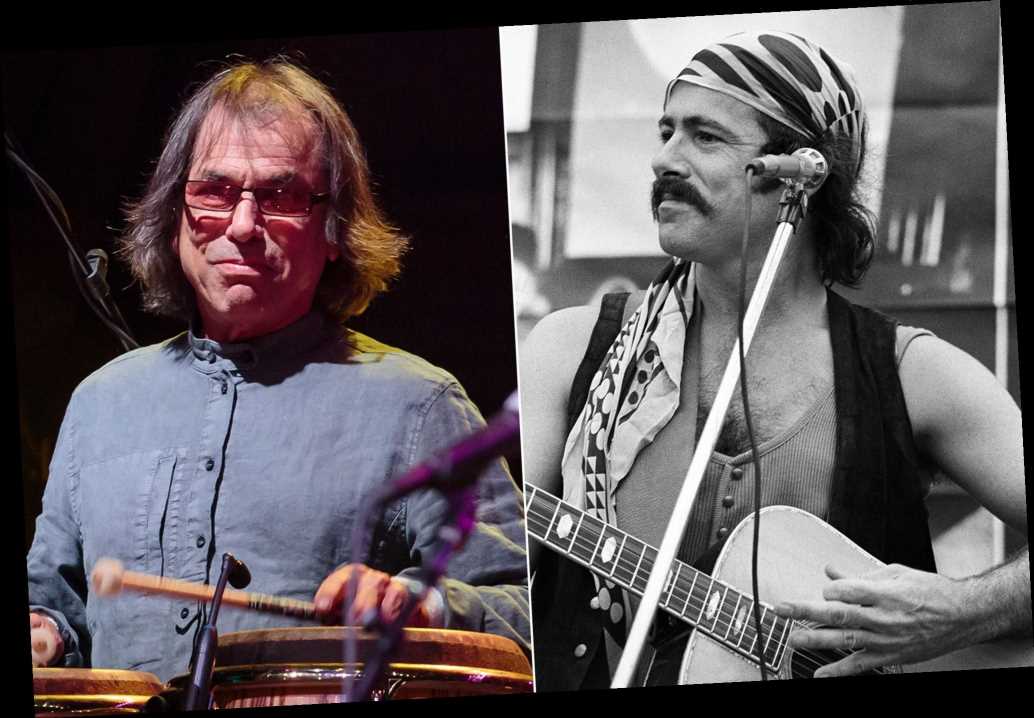In 1961, a young Jerry Garcia met another struggling artist: writer and musician Robert Hunter. For more than 30 years until Garcia’s death in 1995, the two were friends and songwriting partners; with Garcia supplying the music and Hunter the lyrics, out came most of the Grateful Dead’s most enduring songs: “Dark Star,” “Uncle John’s Band,” “Truckin’,” “Touch of Grey,” “Ripple,” “China Cat Sunflower” and so many more. Hunter also wrote with bandmates Bob Weir (“Sugar Magnolia,” “Playing in the Band”) and Phil Lesh (“Box of Rain”). Hunter died of natural causes at age 78 last month. Grateful Dead drummer Mickey Hart, who remained close to Hunter and collaborated with him on several of his post-Garcia projects, spoke with Rolling Stone about Hunter’s life and legacy.
I remember the day my young son asked, “Who is Hunter?”
Hunter was reclusive and anti-social. So many people wanted a piece of him, but he didn’t want publicity and didn’t want to be part of the machine. He just wanted to write his songs. But I said to my son, “Look around you — he’s everywhere. He helped build this house you live in. He spun the greatest stories and songs and images that could ever be. He turned the Grateful Dead from a blues band into mythic status.” Without Hunter, I don’t know if the Grateful Dead would have been the Grateful Dead. We loved him dearly. He was such a part of us.
Jerry and Hunter were the voice of each other. In the studio, I would sit off to the side while Jerry plunked around on a keyboard and Hunter would do his little dance. He got up on one foot and did a little jig, with one foot firmly on the ground and the other bouncing up and down. Once you saw him do that, you knew he was onto something. He loved to see it all come to life. He was right there with us.
In the beginning [in 1967], Jerry called him and asked him to come up and write some words for us. Jerry couldn’t write words, nor did he try. At first Hunter’s words were so complicated, really serious stuff. The words to “Dark Star” were beautiful, lovely and flowed perfectly. We didn’t understand them at first, but then we started to play it and the words had new meaning to us. We said, “We’re a rock and roll band — bring us something we can dance to!” And then all of this stuff started coming.
Very rarely did we talk about his words. He didn’t want to explain the songs and I didn’t want to ask. Hunter would explain a few things but left enough mystery that you would never get the real meaning. He did that mysteriously on purpose. It was like goodies left along the road.
But he was also, in a way, writing our story; our biography. If you listen to his words, you can hear our struggles. The night we were busted in New Orleans was an infamous night, and Hunter made it into a song, “Truckin’.” I had a water pump on my ranch that I had recorded and I said to Bob, “Here, write something to this.” He wrote “Playing in the Band,” which was basically: No one can tell us what to do or how to do it. When he wrote “Touch of Grey,” we were struggling at the time, but it became an anthem to us. It perked us up. We will survive. In a song like “Days Between,” Hunter was trying to talk to Jerry. Jerry was not happy toward the end, and there was no communication between Bob and Jerry, and in that song, Bob hoped Jerry would understand how torn he was. Hunter was turning those moments into poetry.
Remember: He was writing with Bob Dylan, who appreciated his words very much. One time around 1986, Dylan and I were sitting on the couch in our studio at Front Street, rehearsing for one of the Dylan and the Dead tours. In front of us on a table were all these Hunter lyrics the Dead were trying to put to music. All of a sudden, Bob takes one of these sheets of paper, folds it up and puts it in his back pocket. I didn’t say anything. What am I going to say to the guy: “Put it back?” It’s fucking Bob Dylan. I called Hunter and said, “We were sitting there and Dylan picked up one of your songs and put it in his pocket, and I just wanted to let you know in case you hear some of your songs on his record.” And Hunter said, “No problem — it’s Bob Dylan, he can pick whatever he wants.” That song was “Silvio.”
Losing Hunter was quite a shock. You can’t replace him. We always thought that if we didn’t have Jerry, we’d always have Hunter. Speaking for myself, a part of us died with Hunter.
The payoff is when I see all those kids in front of me at Dead and Co. shows. They know all the lyrics. Hunter was very modest and never blew his own horn, but I would tell him about that and he would have that little smile and say something like, “I told you they were good.”
As told to David Browne
Source: Read Full Article
